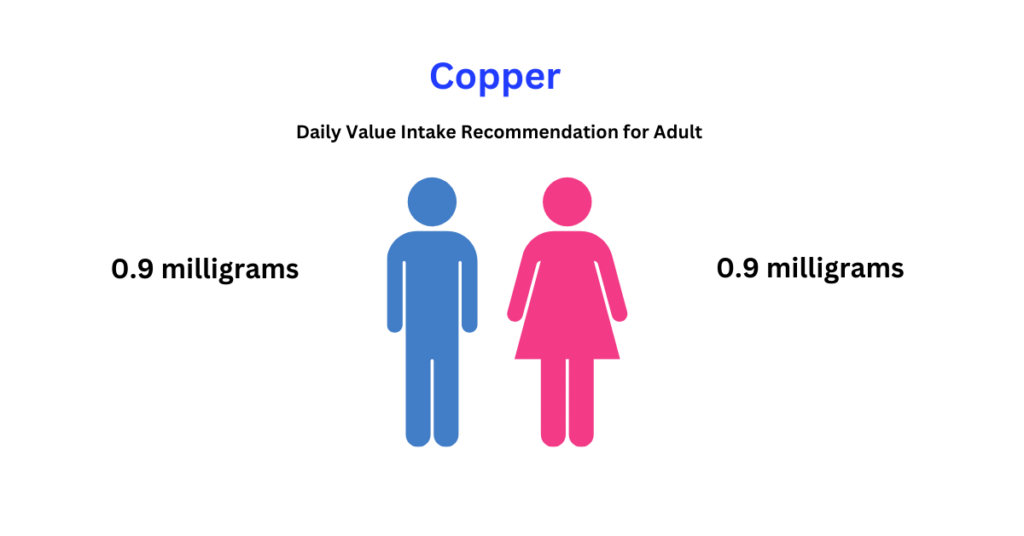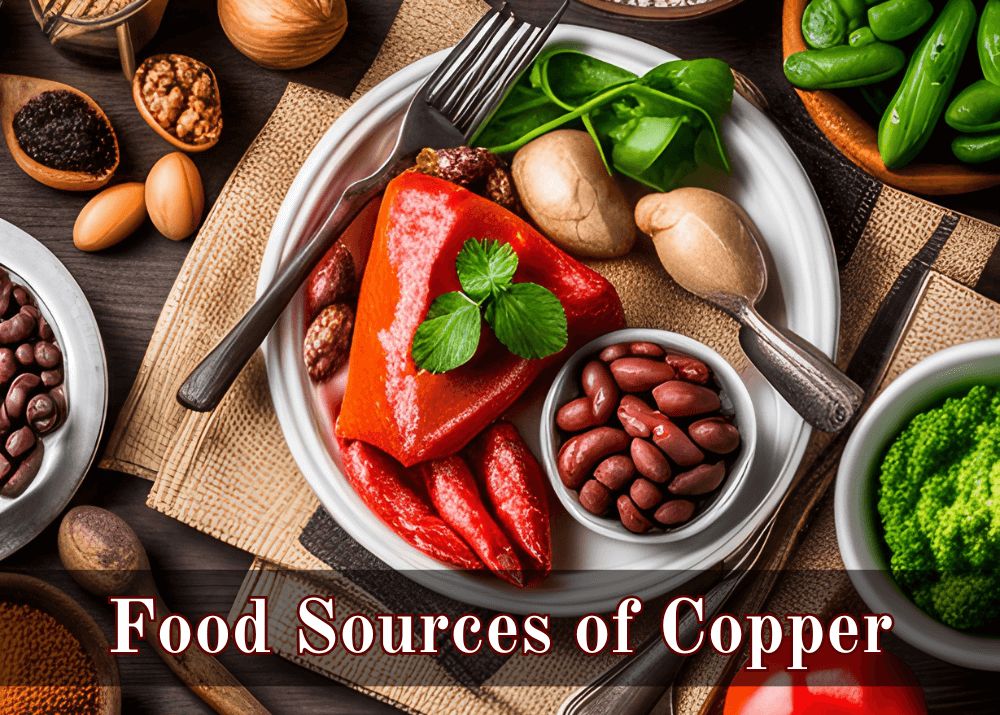Copper, a crucial trace mineral, is vital for several bodily functions, including the formation of red blood cells, nerve maintenance, and immune system support. Understanding and utilizing food sources of copper is essential for meeting the recommended daily intake of this important nutrient. This not only ensures you receive the adequate supply of copper your body needs but also contributes significantly to your overall health.
Optimizing Copper Intake: Meeting Daily Requirements
Meeting the recommended daily intake of copper is crucial for maintaining adequate levels in the body. Copper, essential for forming red blood cells, nerve maintenance, and immune system support, has a recommended daily amount of about 900 micrograms for adults.
A balanced diet rich in copper-containing foods, such as liver, nuts, seeds, whole grains, and seafood, like oysters and crab, is key to meeting these needs. While copper deficiency is rare, its symptoms include fatigue, weakness, and susceptibility to infection.
In cases where diet alone doesn’t suffice, particularly for individuals with specific health conditions, healthcare professionals may recommend copper supplements. However, it’s important to avoid excessive copper intake.
Maintaining balance in your diet is essential since factors like high zinc intake can affect copper absorption. Ensuring you meet the daily copper recommendations is a straightforward yet vital part of maintaining overall health and well-being.
 Food Sources Rich in Copper
Food Sources Rich in Copper
Copper can be found in a diverse array of food sources. Consuming these foods is a natural and effective way to meet the recommended daily intake of this vital mineral.
Here are the top 10 food sources of copper, along with their respective amounts in micrograms (µg):
- Liver (beef or chicken) (3 ounces, cooked): Approximately 4,000-5,700 µg
- Oysters (3 ounces, cooked): Approximately 670 µg
- Crab (3 ounces, cooked): Approximately 200-300 µg
- Nuts (e.g., cashews, almonds) (1 ounce): Approximately 400-600 µg
- Sunflower seeds (1 ounce): Approximately 500-600 µg
- Whole grains (e.g., wheat bran, oat bran) (1 ounce): Approximately 200-400 µg
- Dark chocolate (1 ounce): Approximately 200-400 µg
- Beans (e.g., lentils, chickpeas) (1/2 cup, cooked): Approximately 200-400 µg
- Potatoes (1 medium, cooked with skin): Approximately 200-300 µg
- Avocado (1 medium): Approximately 150-200 µg
Incorporating these foods that contain copper into your diet is a straightforward approach to ensure adequate copper intake.
Deficiencies and Supplementation
Copper deficiency can occur in individuals with malabsorption disorders or extremely restricted diets.
- Copper deficiency is rare but can lead to anemia, bone abnormalities, and immune system dysfunction. It’s important to maintain adequate copper levels.
- Healthcare professionals may recommend copper supplements for individuals who have difficulty obtaining enough copper from their diet or have specific medical conditions requiring higher copper intake.
Interactions and Absorption
- Dietary factors can influence copper absorption. For example, excess intake of zinc can interfere with copper absorption. Maintaining a balance between zinc and copper intake is important for overall health.
- Certain medications, such as high-dose zinc supplements, can also affect copper levels. Discussing potential interactions with healthcare providers is important for maintaining optimal copper levels.
Conclusion
Copper is intricately involved in numerous enzymatic processes and is vital for overall health. By understanding the best food sources of copper, recognizing the signs of copper deficiency, and being aware of factors affecting copper absorption, you can effectively manage your copper intake. Regular consumption of copper-rich foods, coupled with informed choices about supplements and dietary balance, will ensure that your body receives the copper it needs to function optimally.






